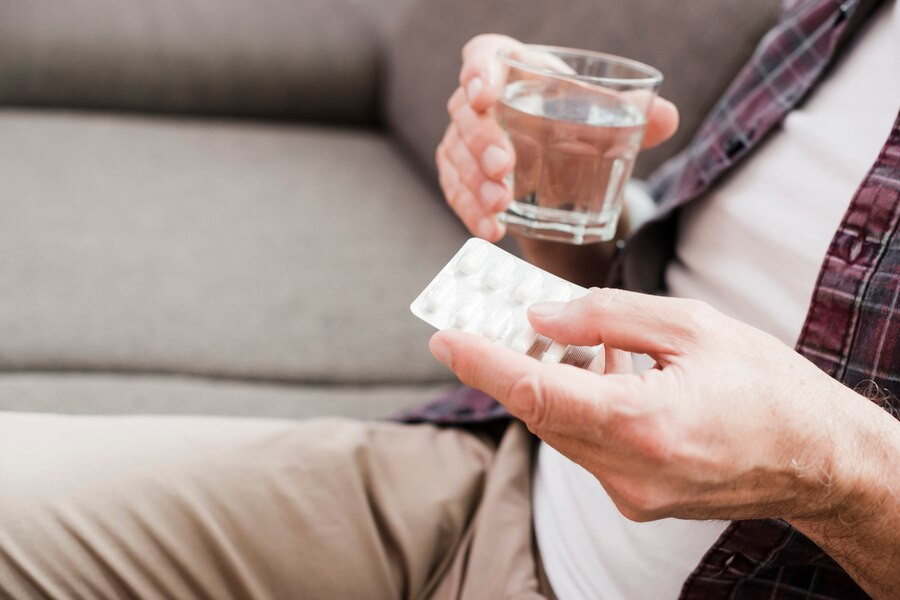Tidak semua nyeri dada berhubungan dengan penyakit jantung. Nyeri dada yang tidak berhubungan dengan penyakit jantung dikenal dengan istilah nyeri dada nonkardiak.
Nyeri dada nonkardiak bisa disebabkan oleh berbagai kondisi, salah satunya adalah gastroesofageal reflux disease (GERD) atau penyakit refluks asam lambung. Gejala nyeri dada akibat GERD sering kali terasa seperti tekanan atau terbakar di bagian tengah dada, mirip seperti nyeri jantung. Apa yang menyebabkan nyeri dada pada GERD?
Nyeri Dada GERD Vs Nyeri Dada Penyakit Jantung
Nyeri dada yang berasal dari masalah jantung dan nyeri yang terkait dengan gangguan pencernaan sebenarnya sedikit berbeda. Nyeri dada yang terkait dengan masalah jantung sering kali disertai gejala tambahan seperti nyeri yang menjalar ke lengan kiri, punggung, bahu atau leher. Nyeri ini juga biasanya terasa seperti tekanan, perasan yang berat dan sangat intens.
Sedangkan nyeri dada yang disebabkan oleh GERD mungkin terasa tajam atau seperti rasa terbakar di belakang tulang dada. Sensasi ini biasanya tidak terasa dalam dan mungkin baru dirasakan saat dipengaruhi oleh gerakan tertentu seperti bernapas dalam atau batuk.
Baca Juga: Langkah-Langkah Mencegah GERD Kambuh
Mengapa Nyeri Dada Dirasakan saat GERD
GERD adalah kondisi di mana asam lambung naik ke kerongkongan. Ini menyebabkan iritasi pada dinding kerongkongan. Ketika asam lambung mencapai ke area ini, maka saraf-saraf di sekitarnya ikut terpengaruh sehingga menyebabkan sensasi nyeri serta ketidaknyamanan di dada.
Adanya peradangan di kerongkongan akibat refluks asam juga dapat menyebabkan nyeri dada yang lebih terasa. Pada saat ini, Anda disarankan untuk mengonsumsi obat antasida yang dapat membantu menetralkan asam lambung dan meredakan gejala nyeri dada.
Baca Juga: 4 Obat Rumahan Saat GERD Menyerang
Apa yang Harus Dilakukan saat Nyeri Dada GERD Menyerang?
Untuk mengatasi nyeri dada akibat GERD, Anda perlu mengatasi serangan asam lambung yang dialami. Berikut adalah beberapa langkah yang perlu dilakukan:
- Berdiri tegak sehingga dapat mencegah asam lambung naik ke kerongkongan
- Minum sedikit air untuk membantu menetralkan asam lambung dan mengurangi sensasi terbakar di kerongkongan
- Melonggarkan pakaian yang ketat atau ikat pinggang yang digunakan untuk mengurangi tekanan pada perut yang dapat memicu refluks asam
- Mengonsumsi antasida untuk menetralkan asam lambung dan mengurangi sensasi terbakar dan iritasi di kerongkongan. Antasida biasanya tersedia dalam bentuk tablet, kapsul, suspensi, atau tablet kunyah
- Menghindari makanan atau minuman yang memperparah gejala refluks asam seperti makanan pedas, berlemak, berkarbonasi atau berkafein
GERD sering kali mengganggu aktivitas sehari-hari, namun Anda bisa mengelola gejalanya sehingga dapat mencegah nyeri dada yang dirasakan. Anda mungkin perlu mempertimbangkan diri untuk memeriksakan diri ke dokter dan berkonsultasi bila memiliki gejala refluks asam berulang, kesulitan menelan, gangguan tidur, gejala komplikasi seperti batuk kronis, suara serak dan kesulitan bernapas.
Memiliki pertanyaan lain terkait GERD? Anda bisa memanfaatkan layanan konsultasi kesehatan dengan mengunduh aplikasi Ai Care melalui App Store atau Play Store.
Mau tahu informasi seputar penyakit lainnya? Cek di sini, ya!
- dr Nadia Opmalina
Cleveland Clinic (2022). Noncardiac Chest Pain. Available from: https://my.clevelandclinic.org/health/diseases/15851-gerd-non-cardiac-chest-pain
Cleveland Clinic (2023). Acid Reflux & GERD. Available from: https://my.clevelandclinic.org/health/diseases/17019-acid-reflux-gerd
Harvard Medical School (2023). Heartburn vs. heart attack. Available from: https://www.health.harvard.edu/heart-health/heartburn-vs-heart-attack
Mayo Clinic (2023). Chest pain. Available from: https://www.mayoclinic.org/diseases-conditions/chest-pain/symptoms-causes/syc-20370838
Cleveland Clinic (2023). Heartburn. Available from: https://my.clevelandclinic.org/health/diseases/9617-heartburn-overview
Stephanie Watson (2022). Heartburn Treatment. Available from: https://www.webmd.com/heartburn-gerd/heartburn-relief-tips
Blake H. Salisbury and Jamie M. Terrell (2023). Antacids. Available from: https://www.ncbi.nlm.nih.gov/books/NBK526049/












